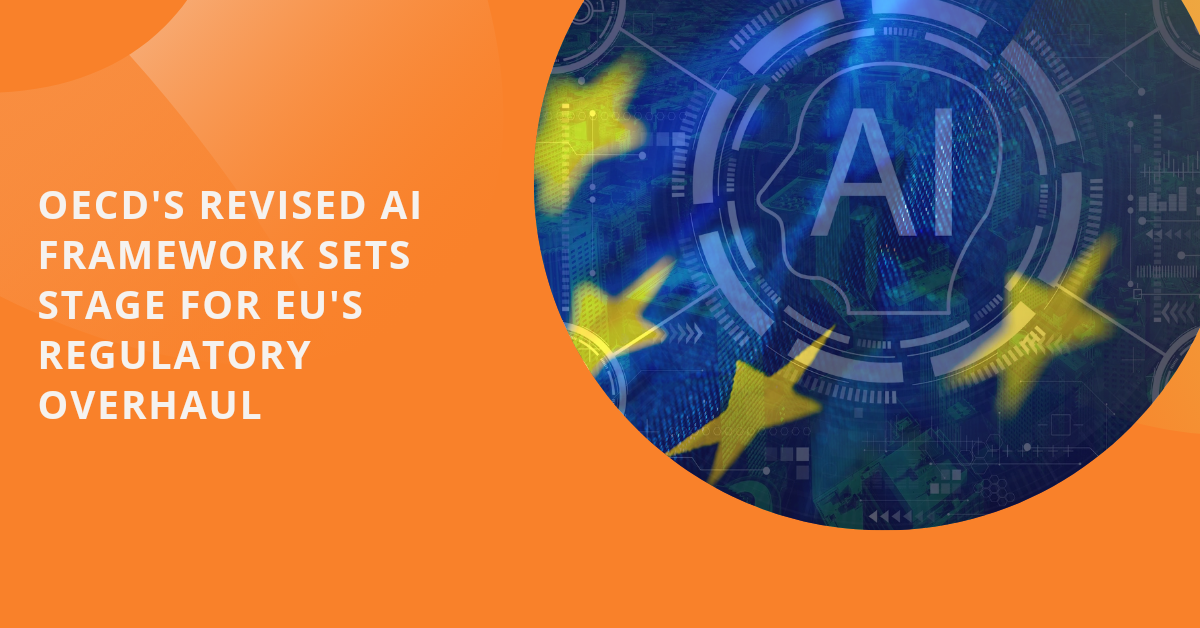OECD's Revised AI Framework Sets Stage for EU's Regulatory Overhaul

The Organisation for Economic Co-operation and Development (OECD) updated its definition of artificial intelligence (AI) on November 8, 2023. The move is set to shape the European Union's (EU) upcoming AI regulation. The revised definition emphasizes machine-based systems inferring outcomes for explicit or implicit objectives.
The OECD's AI definition was first published in 2019, and the update reflects the rapid pace of development in the field. The new definition is more comprehensive and inclusive, and it takes into account new and emerging AI technologies.
The New Definition and Key Features of AI Systems
The new definition highlights the following:
• Machine-based: AI systems are based on machines, such as computers and robots.
• Autonomy: AI systems can operate to some degree without human intervention.
• Perception: AI systems can sense and interpret their environment.
• Learning: AI systems can learn from data and experience.
• Reasoning: AI systems can use logic and deduction to make decisions.
• Acting: AI systems can take actions in the real world.
The OECD's updated definition of AI is significant because it will be used to inform the EU's upcoming AI Act. The AI Act is a comprehensive piece of legislation that aims to regulate the development and use of AI in the EU. The Act is expected to be finalized in 2023 and come into force in 2024.
The OECD's updated definition of AI is likely to have a number of implications for the EU's AI Act. For example, the new definition is broader than the previous definition, which means that it will cover a wider range of AI systems. The new definition also emphasizes the importance of autonomy in AI systems, which suggests that the AI Act may place stricter requirements on autonomous AI systems.
The OECD's updated definition of AI is a welcome development. It is important to have a clear and up-to-date definition of AI in order to regulate it effectively. The OECD's new definition is likely to help the EU develop a comprehensive and effective AI Act.
How to Prepare for the OECD Updated Definition of EU AI Act
Here are some specific things that Switzerland businesses and organizations can do to prepare for the OECD's updated definition of AI and the EU's AI Act:
• Review your AI systems to determine which ones would be classified as high-risk, limited-risk, or minimal-risk under the EU's AI Act.
• Identify any compliance gaps with the EU's AI Act and develop plans to address them.
• Implement measures to ensure that your AI systems are transparent and accountable.
• Develop and implement human oversight and risk assessment procedures for your high-risk AI systems.
By taking these steps, Swiss businesses and organizations can help to ensure that their AI systems are compliant with the EU's AI Act and that they are used in a responsible and ethical manner.
Sources:





